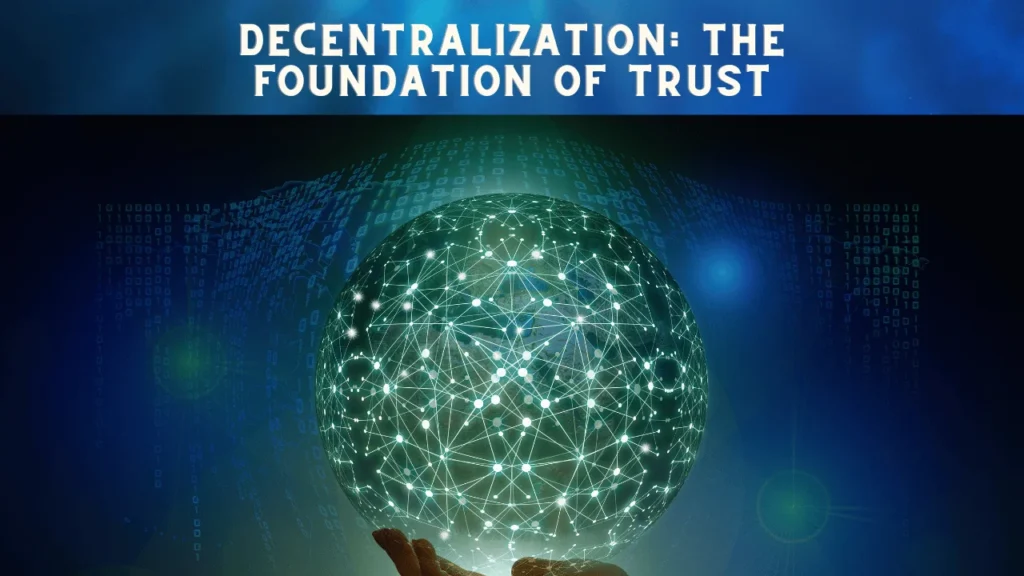The advent of blockchain technology in the modern era has been nothing short of revolutionary, altering the face of financial transactions and information management forever. Blockchain technology is leading the charge in digital transformation due to its exceptional capacity to provide security, transparency, and efficiency. Not only does this technology form the basis of cryptocurrencies, but it also has applications in other areas and has the potential to change the world’s economy. Before we dive into Features of Blockchain, it’s important to know what it is and how it affects various industries around the world.
Blockchain Technology for Digital Transactions
Distributed ledgers or databases, shared among computer network nodes, are the core of blockchain technology. Its decentralization, immutability, and transparency set it apart from conventional databases, which store data in paper or electronic form. Digital transactions are made more secure and efficient with these features, and digital communications are made more open and trustworthy. Blockchain is a strong platform for transparent and secure transactions because its design guarantees that no one entity controls the whole network.
Decentralization: The Foundation of Trust

Eliminating Central Points of Failure
Blockchain technology relies on decentralization. Blockchain gets rid of those pesky centralized points of failure by spreading its operations out over a network of computers. The system’s security and reliability are greatly improved by its decentralized architecture, which keeps it operational even if a portion of the network goes down.
Security and Privacy
Hacks and illegal access are less likely to occur on a blockchain because of its decentralized nature. An unprecedented degree of security and privacy is offered to users as there is no central point of control, making it exponentially more difficult for attackers to compromise the network.
Democratic Governance
The distributed ledger technology known as blockchain encourages a more representative government. A more just and equitable administration of the system is the result of everyone’s input into the network’s functioning. Users are more likely to feel a sense of belonging and confidence as a result of this openness.
Trustless Transactions
There is no need for a central authority to facilitate transactions thanks to blockchain’s trustless environment. As a result, the digital economy becomes more efficient and secure, and the transaction process becomes faster. Disputes and fraud are also less likely to occur.
Immutability: Ensuring Integrity and Permanence

Protecting Transaction Records
An essential aspect of blockchain is its immutability, which guarantees that recorded transactions cannot be changed. For a secure and reliable ledger that all participants can rely on, this feature is vital for keeping transaction records intact and permanently.
Securing the Chain of Blocks
A secure link between blocks is created by including a unique hash of the previous block in each block of a blockchain. The integrity of the chain is protected because changing one block would mean changing all the blocks after it, which is very difficult to do on a distributed network.
Building Trust Through Transparency
Blockchain records are permanent and transparent because they cannot be altered. Users are able to independently verify transactions, which fosters trust and ensures accountability within the network.
Preventing Fraud and Tampering
An effective tool for preventing fraud and data tampering, blockchain records are difficult to alter. Blockchain technology lays a solid groundwork for essential industries like supply chain management, financial services, and more by securely recording transaction histories.
Transparency: A New Era of Openness
Open Ledger Accessibility
The distributed ledger technology known as blockchain makes transactions publicly available. Information is freely available and verifiable by all participants in the network because they all have access to the same transaction records.
Accountability and Trust
Because of blockchain’s immutability, every transaction on the network can be seen and tracked. Accountability among users is encouraged by this degree of transparency, which in turn improves ecosystem trust and cooperation.
Facilitating Verifiable Transactions
Because it is based on a principle of transparency, blockchain makes it easy to verify transactions. Since this improves the efficiency of validation while simultaneously strengthening the safety and authenticity of digital transactions, blockchain has become an essential tool for contemporary online trade.
Promoting Data Integrity and Quality
Data integrity, currency, and consistency are guaranteed by blockchain’s open ledger model. In order to make educated decisions and run efficient operations, high-quality and trustworthy data is essential, and this helps achieve just that.
Smart Contract Technology

Definition and Functionality
A “smart contract” is an agreement between a buyer and seller that is “hard-coded” into computer code and then automatically executes. Automated contract negotiation and enforcement are made possible by these digital contracts running on the blockchain. By doing away with middlemen, this technology streamlines contract management, cutting down on both time and money.
Benefits of Smart Contracts
A high degree of security and a decrease in fraudulent activities are the main benefits of smart contracts. By replacing labor-intensive, paper-based processes with automated ones, they also provide substantial cost and time savings. With smart contracts, transactions are executed automatically when certain conditions are satisfied, guaranteeing precision and efficiency.
Applications Across Industries
In addition to the cryptocurrency industry, smart contracts are causing a stir in the real estate, healthcare, and financial markets. Insurance claims processing, property sales, and patient data management are just a few examples of the complicated processes that can be automated to provide a more efficient, safe, and economical solution.
Challenges and Limitations
Problems with scalability, privacy, and legal recognition are just a few of the obstacles that smart contracts must overcome. Constant innovation in the field is attempting to overcome these restrictions, making smart contracts more useful in more fields as the technology develops.
Blockchain Scalability Solutions
Scalability Issues
A major obstacle that has arisen with the rise in popularity of blockchain technology is its scalability. Blockchain networks must be able to process a high volume of transactions quickly in order for them to gain traction. During periods of heavy use, transaction fees rise and processing times slow down on older, less scalable blockchains such as Bitcoin and Ethereum.
Layer 2 Solutions
By moving transaction processing away from the main blockchain, layer 2 scaling solutions like Bitcoin’s Lightning Network and Ethereum’s various scaling solutions hope to overcome these obstacles. This method makes blockchain technology more applicable to real-world scenarios by drastically enhancing transaction speed while decreasing associated costs.
Sharding and Sidechains
By dividing the blockchain into smaller, more manageable pieces called “shards,” throughput can be increased by processing transactions in parallel. Connected to the main blockchain, sidechains allow for the offloading of processing and transactions, which can greatly enhance the network’s overall performance.
Proof of Stake (PoS) Mechanisms
Another approach to improve scalability is to switch from Proof of Work (PoW) to Proof of Stake (PoS) consensus mechanisms. PoS speeds up transactions and decreases energy consumption by reducing the computational work required for block creation and transaction validation.
Blockchain and Digital Identity
The Need for Secure Digital Identity
Nowadays, protecting one’s digital identity is critical because of how integrated technology is into people’s everyday lives. Conventional approaches to verifying an individual’s identity are frequently inefficient and vulnerable to security breaches. By facilitating safe, immutable digital identities, blockchain provides a solid solution.
Blockchain-Based Identity Systems
These systems build an immutable, distributed ledger of user identities using blockchain technology. This method reduces the likelihood of fraud and identity theft while simultaneously increasing security by empowering individuals with control over their own data.
Applications in Verification Processes
Know Your Customer (KYC) processes, secure online transactions, and access control are just a few of the verification procedures that can benefit from digital identities built on the blockchain. The verification process is made more efficient and user-friendly by this technology, which simplifies it.
Challenges and Future Prospects
There are still some issues with blockchain, such as privacy concerns and the lack of interoperability between blockchain systems, even though it does offer a potential solution for digital identity management. The use of blockchain technology to secure digital identities is expected to be further reinforced by developments in regulatory frameworks and technological advancements.
Must Read: How Does Blockchain Technology Help Organizations When Sharing Data?
FAQs
What is blockchain technology?
Blockchain is a distributed ledger technology that stores information across a network of computers, ensuring security, transparency, and immutability of data.
How does blockchain ensure transaction security?
Blockchain uses cryptographic hash functions and a consensus mechanism to ensure that once a transaction is added to the ledger, it cannot be altered, ensuring high levels of security.
What are smart contracts?
Smart contracts are self-executing contracts with the terms directly written into code, which automatically execute when predefined conditions are met.
Can blockchain scale for global use?
Blockchain faces scalability challenges, but solutions like Layer 2 protocols, sharding, and Proof of Stake consensus mechanisms are being developed to address these issues.
What role does blockchain play in digital identity?
Blockchain can provide a secure, immutable, and decentralized framework for digital identity management, enhancing privacy and security for individuals.
Conclusion
Digital transactions and data management are about to undergo a sea change due to blockchain technology and its unique characteristics of decentralization, immutability, and transparency. Features of Blockchain like these are revolutionizing industries from banking to supply chain management and beyond. It provides a safe, transparent, and efficient platform with the ability to transform entire industries. The more we learn about blockchain’s potential uses, the more evident it becomes that this technology is here to stay, influencing the way digital transactions and international trade are conducted in the years to come.

Brandy Stewart, an enchanting wordsmith and seasoned blogger, weaves compelling narratives that transport readers to uncharted territories. Infused with perceptive viewpoints and dynamic storytelling, Doris exhibits a command of language that enthralls both hearts and minds, leaving a lasting mark on the literary panorama.

